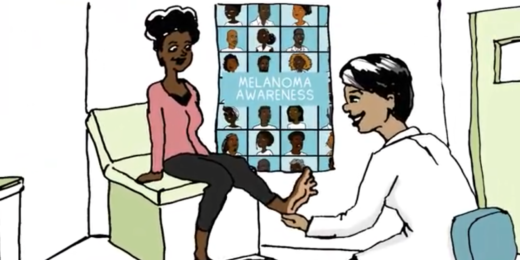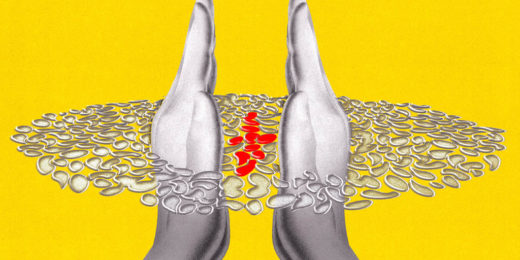Leandra Barnes talks about being drawn to dermatology because of its non-inclusionary tendencies, giving her fertile soil to advocate for better care for people of color.
Category: Skin Cancers
Seeking more equitable outcomes for his tribal heritage
For Christopher Lopez, currently a third-year medical student, the Stanford Medicine campus is more than just where he’s pursuing his MD-PhD degree -- it sits on the ancestral land of the Ohlone people.
Ask Me Anything: Skin cancer and skin care
Stanford Medicine's Zakia Rahman discusses skin cancer prevention and tips to have healthy skin in this Ask Me Anything.
Cancer-detecting wearable may offer better way to monitor tumors
Researchers from Stanford have developed a wearable sensor to monitor the size of tumors, which could assist new cancer drug evaluations.
Mobile app helps detect skin cancer in older patients
Scientists used a mobile app to screen elderly patients for potential skin cancer lesions, pointing to the value of digital health tools.
Researchers discuss health disparities in melanoma diagnoses
While melanoma rates have leveled off for most of the United States, Black and Latino communities are at a higher risk for the disease.
Stanford residents aim to make clinics more sustainable
Stanford Medicine resident and collaborators spearhead an effort to decrease waste from dermatology clinics.
Keeping treatment-resistant skin cancer cells in check
Anthony Oro is devoted to understanding the origin of basal cell carcinomas. Now he's found how some become resistant to a common treatment.
Does retinol deserve the hype? A Stanford dermatologist weighs in
A Stanford dermatologist weighs in on using retinol to fight aging, acne and other skin problems, and whether it deserves the hype.
Fighting skin cancer with Facebook, YouTube and…rap?
Stanford researcher Eleni Linos turned to social media to see if it was a more effective way to spread information about skin cancer and tanning to youth.
May I have this dance? Nuclear chaperones guide transcription factors to DNA
Proteins that guide transcription factors from the nuclear membrane to the DNA cause drug-resistant skin cancers and are new targets for drug development.
Frequent skin cancers might indicate increased risk for other cancers
People who develop abnormal numbers of skin cancers called basal cell carcinomas may be at increased risk of other, unrelated internal cancers.
“Molecular car wash” aims to make skin cancer surgery quicker and more accurate
A "molecular car wash" may help dermatologists accurately and more quickly identify and remove tiny skin cancers caused by sun damage. The technique also pinpoints subtle molecular differences associated with the cancers that may one day guide treatment.














